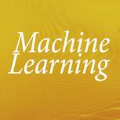The problem of self-tuning control of cooperative manipulators forming a closed kinematic chain in the presence of an inaccurate kinematics model is addressed using adaptive machine learning. The kinematic parameters pertaining to the relative position/orientation uncertainties of the interconnected manipulators are updated online by two cascaded estimators in order to tune a cooperative controller for achieving accurate motion tracking with minimum-norm actuation force. This technique permits accurate calibration of the relative kinematics of the involved manipulators without needing high precision end-point sensing or force measurements, and hence it is economically justified. Investigating the stability of the entire real-time estimator/controller system reveals that the convergence and stability of the adaptive control process can be ensured if i) the direction of the angular velocity vector does not remain constant over time, and ii) the initial kinematic parameter error is upper bounded by a scaler function of some known parameters. The adaptive controller is proved to be singularity-free even though the control law involves inverting the approximation of a matrix computed at the estimated parameters. Experimental results demonstrate the sensitivity of the tracking performance of the conventional inverse dynamic control scheme to kinematic inaccuracies, while the tracking error is significantly reduced by the self-tuning cooperative controller.
翻译:在不精确的动脉模型存在的情况下,对形成封闭运动链的合作操控者进行自我调控的问题通过适应性机器学习来解决。与相互关联的操控者相对位置/方向不确定性有关的运动参数通过两个级联估测器在线更新,以便调制一个合作控制器,用最低调动力进行准确的运动跟踪。这种技术可以精确校准所涉操控者的相对运动动力学,而不需要高度精确的终端感测或武力测量,因此在经济上是有道理的。调查整个实时估测/控制器系统的稳定性表明,如果(一) 角速度矢量的方向在一段时间内不保持不变,以及(二) 初始运动参数误差由某些已知参数的缩放功能所约束。适应性控制器被证明是独一无二的,即使控制法涉及对根据估计参数计算的矩阵的近似近度。实验结果显示,如果(一) 角速度矢量矢量矢量矢量矢量矢量矢量矢量矢量的跟踪过程的敏感度,则可以确保适应性控制过程的趋同性和稳定性,同时通过对传统动态控制系统进行大幅度的自我调节,对常规的自我调节计划进行弹性的追踪。



